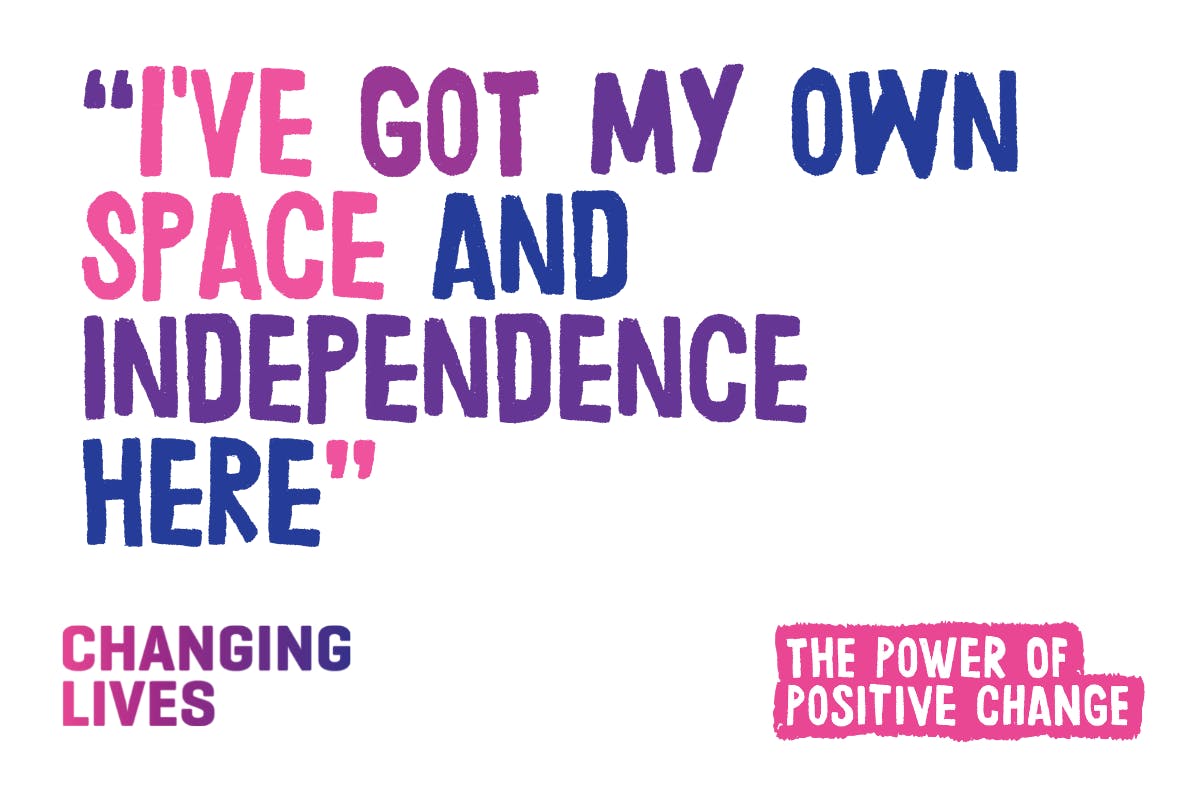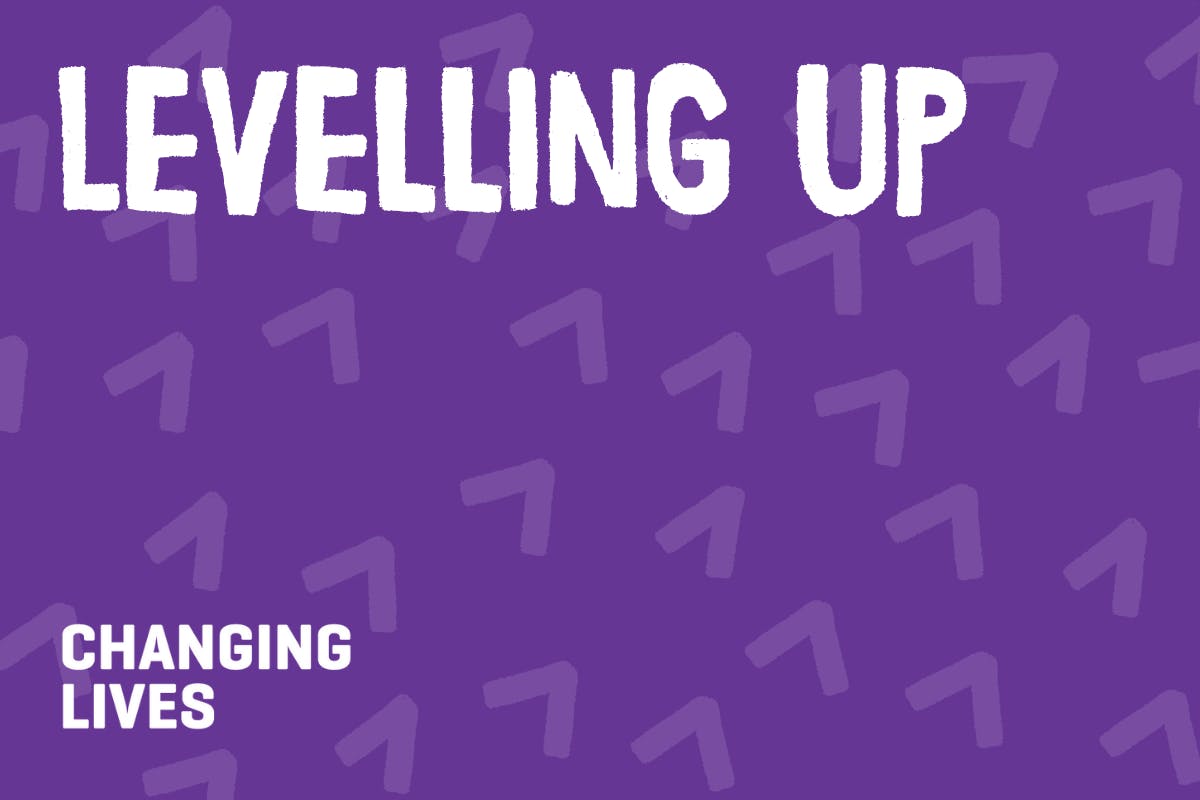Last week (3 September 2022) the Government published its updated Rough Sleeping Strategy which sets out how it intends to meet its target of ending rough sleeping by the end of the current Parliament in 2024. The Strategy is based on the welcome ambition that rough sleeping is prevented wherever possible, and where it does occur it is rare, brief and non-recurrent.
During the pandemic we saw that, where there is leadership and political will, action can be taken to make a massive difference to people sleeping rough. The Everyone In initiative, which made accommodation available to everyone who was sleeping rough during the pandemic, saved countless lives. We therefore welcome the new Strategy, including new longer-term funding, the commitment to prevention alongside intervention and recovery, and the strong focus on housing-led solutions for moving people away from rough sleeping for good.
Not just about a roof over people’s heads
At Changing Lives we have been calling for a long time for more investment in housing-led solutions to homelessness. We believe that homelessness should only ever be a short transition in someone’s life and we therefore want an approach to homelessness and rough sleeping that moves people into their own home with their own front door at the earliest opportunity, rather than leaving them to prove themselves ‘housing-ready’ in a system that often exacerbates trauma and barriers to independent living and leaves them more likely to return to the streets.
Until recently, the majority of beds that Changing Lives had available nationwide for people experiencing homelessness were based in hostels, but we knew this wasn’t right for many people. We asked people what they wanted and they told us things like “I’d like to be to use the kitchen in the middle of the night”, “I’d like to not be disrupted by other people’s comings and goings” and “I’d like a space that I can make my own”. What this all built up to was something simple: “I want my own front door”.
So we decided to change our housing model to give people the opportunity to live independently, in their own self-contained accommodation, with varying levels of support depending on what people feel they need. As part of this, we renovated Elliott House, a 52 bed hostel in Newcastle, to create the re-named Bentinck Terrace in July 2021, with 36 self-contained apartments. This has had a positive impact on both staff and residents. Across our services in Newcastle, we have found that people given their own front door are three times more likely to move into a permanent home compared to people in hostels or houses of multiple occupancy (HMOs) and also spend less time in the homelessness system (an average of 133 nights for people given their own front door compared to an average of 327 nights for those in hostels or HMOs).
“I’ve got my own space and independence here, but I know I’ve also got the support I need. It’s a lovely safe space, and when my door closes I can be in my own little world to do my painting and chill out, something I felt I could never do when I was living in shared hostels. It gives you the time and privacy to just be you and work on yourself. It feels like home.”
We hope that the Single Homelessness Accommodation programme and other funds will make it possible to replicate the success of this model in other areas.
Priced out of independent living
Unfortunately, while we know that giving people their own front door is the right thing to do, we currently face a major challenge as the cost of living continues to rise. Our recent Priced Out report highlights the challenges faced by people accessing our services, including the fact that independent living is simply becoming unaffordable for many people, especially those aged under 25 who are not eligible for the higher rate of Universal Credit. If we move people into a home that they can’t afford then they are more likely to end up back in homelessness services or back on the streets. We are worried that people will become stuck in homelessness services, with increased demand for bed spaces combined with a decreased ability to move people on to their own permanent home.
Many of the excellent commitments in the Rough Sleeping Strategy will be ineffective if the Government does not do more to address the rising cost of living, including prioritising support for those moving on from rough sleeping and homelessness services. Our recommendations, set out in full in our Priced Out report, include:
- Uprating Universal Credit, at least in line with inflation, and increasing rates for people aged under 25 to the same level as those 25 or over.
- A temporary pause on Universal Credit deductions until payments are aligned with inflation.
- Changing advance payment of Universal Credit from a loan to a grant, so that people do not immediately incur debt when making a new claim.
- Increasing Local Housing Allowance to 50% of market rates, and reviewing it regularly to ensure that it remains aligned to housing prices.
- Introducing a transition period for people who secure employment whilst living in supported accommodation, so that they can find new accommodation before their housing benefit is removed and they become liable for paying higher than average rents.
Hidden homelessness
Rough sleeping is the most visible form of homelessness, but we also urge the Government to build on this Strategy by addressing hidden forms of homelessness that disproportionately affect women. Many women who access our services do not feel safe on the street or in hostels so are more likely to sofa surf or access insecure and dangerous accommodation.
We often see perpetrators deliberately targeting women and using their experiences of rough sleeping and homelessness to lure them into exploitative and abusive situations. Women subsequently struggle to escape this abuse and exploitation as they are often seen as having made themselves deliberately homeless so are ineligible for support, meaning they face the choice of remaining with their perpetrator so they can have a roof over their head or rough sleeping.
We have seen excellent progress made in supporting people who have experienced domestic abuse, including increasing access to different forms of refuge support, but we need this to be extended to other forms of abuse including sexual exploitation where accommodation status is linked to the abuse. Many women we support, particularly those with multiple unmet needs, are seen as too ‘complex’ for traditional refuges but, if no alternatives are provided, they end up in generic hostels which are not appropriate for their needs and where they cannot address the trauma that they have experienced. By providing a full range of gender-specific, trauma-informed refuge support we can drastically improve the life chances of women who have experienced substantial trauma, but can also reduce future demands on homelessness services.




